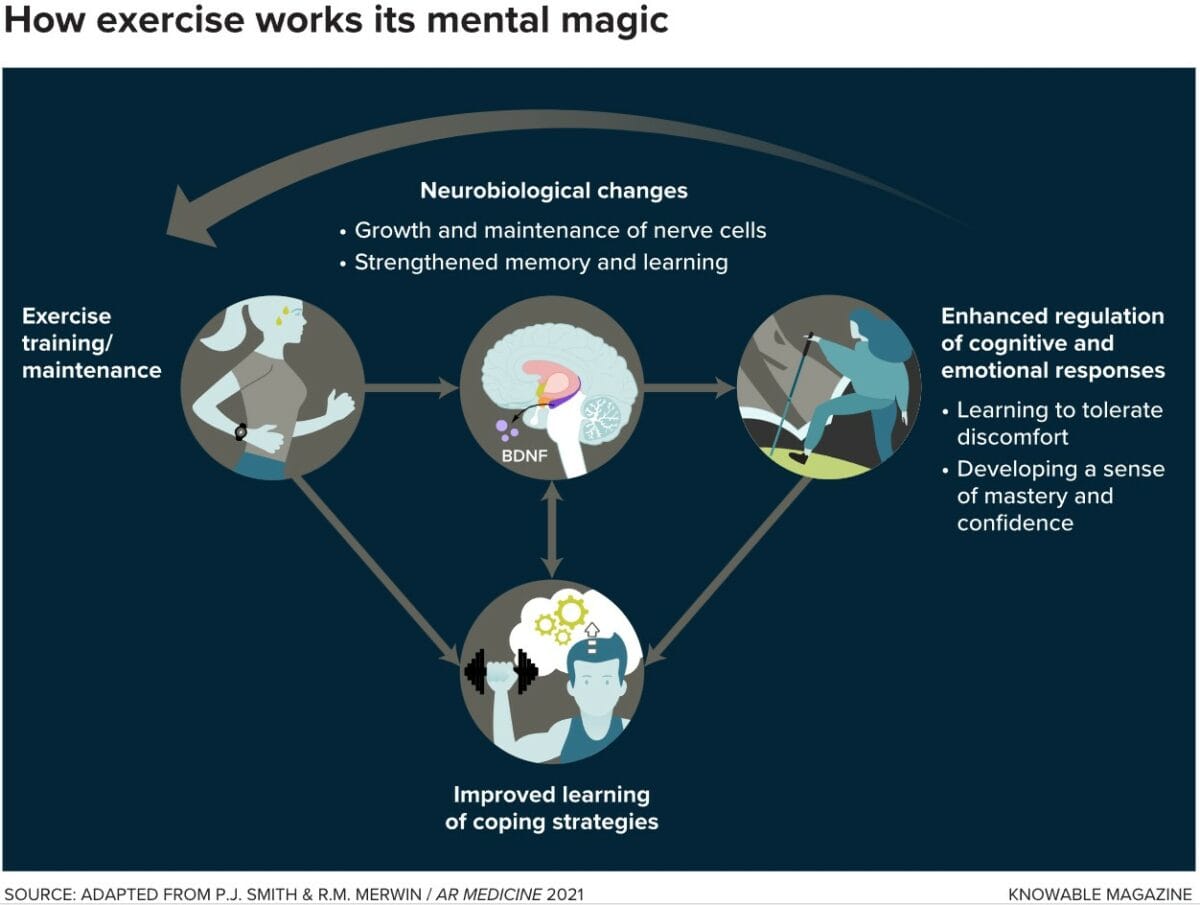Living an active lifestyle is crucial for our overall health and well-being. It’s not just about hitting the gym; it’s about integrating movement into your daily life. Whether you’re looking to enhance your mobility or recover from an injury, physiotherapy in Oakville can play a key role in helping you stay active. Here are seven tips that can help you embrace a more active lifestyle, focusing on various exercise types, prevention strategies, and the importance of physiotherapy.

1. Embrace Neuromuscular Exercises
Neuromuscular exercises are all about improving your body’s ability to perform coordinated movements. Think of activities like yoga, Pilates, or tai chi. These exercises enhance balance, agility, and coordination, which are essential for daily activities and overall mobility.
Start by incorporating short sessions into your routine. Even 15 minutes of yoga in the morning can make a difference. If you’re in Oakville, you can consult a physiotherapist to ensure your movements are precise and safe, helping you avoid injury. As you become more comfortable, explore different styles or join a class to keep things exciting.
2. Incorporate Progressive Resistance Exercises
Progressive resistance exercises are crucial for building strength and endurance. These exercises involve gradually increasing the amount of weight or resistance you use, helping your muscles adapt and grow stronger over time.
You don’t need a gym membership to do this. Bodyweight exercises like push-ups, squats, and lunges can be done anywhere. For those in Oakville looking to enhance their routine, physiotherapy can offer personalized advice on proper technique, especially if you’re recovering from an injury or have muscle imbalances. Aim for two to three sessions per week, focusing on major muscle groups for balanced strength development.
3. Prioritize Mobility Exercises
Mobility exercises enhance your range of motion and flexibility, reducing the risk of injury. Think dynamic stretches or mobility drills that prepare your body for movement.
Integrate these exercises into your warm-up routine before any physical activity. Simple movements like arm circles, hip openers, and ankle rolls can improve your mobility significantly. If you’re looking for guidance, physiotherapy in Oakville can assist in identifying areas of stiffness or restricted movement and provide tailored exercises to improve your flexibility.
Good mobility isn’t just for athletes; it’s essential for everyone. It helps with daily tasks like bending down to tie your shoes or reaching for items on high shelves.
4. Focus on Prevention
Incorporating preventative measures into your active lifestyle is key. This includes listening to your body and recognizing signs of overexertion or fatigue. Stretching before and after exercise can help reduce muscle tension and soreness.
If you are in Oakville, regular visits to a physiotherapist can help you prevent injuries before they happen. They can evaluate your movement patterns and suggest exercises that align with your fitness goals while minimizing the risk of injury. Prevention is always better than cure, so pay attention to your body’s signals and adapt your routine accordingly.
5. Understand the Importance of Physiotherapy
Physiotherapy plays a vital role in maintaining an active lifestyle, especially if you’ve had past injuries or chronic pain. A physiotherapist can assess your movement patterns, identify weaknesses, and design a tailored exercise program to help you improve.
If you’re in Oakville, a local physiotherapy clinic can provide valuable insights even when you feel fine. Consulting a professional early on can help you develop a balanced routine that enhances your strength and mobility, reducing your risk of injury in the long run.
6. Tips for Safely Performing Exercises
Safety should always be a priority when exercising. Here are some tips to ensure you stay injury-free:
- Warm Up and Cool Down: Spend at least five to ten minutes warming up before any workout and cooling down afterward.
- Focus on Form: Proper form is essential to prevent injuries. If you’re unsure, don’t hesitate to ask for guidance or watch instructional videos. Better yet, seek advice from a physiotherapist in Oakville to ensure you’re doing exercises correctly.
- Start Slow: If you’re new to a type of exercise, ease into it. Gradually increase intensity and duration as your body adapts.
- Stay Hydrated: Dehydration can lead to fatigue and injuries, so drink plenty of water before, during, and after exercise.
7. Make Movement a Daily Habit
Lastly, find ways to incorporate more movement into your daily routine. Take the stairs instead of the elevator, walk or bike for short errands, or even set a timer to remind you to stretch or take a quick walk every hour.
If you’re based in Oakville, there are various local parks and trails where you can get moving outdoors. Additionally, a physiotherapy consultation can help you find creative ways to integrate movement into your routine, especially if you’re dealing with mobility limitations.
The key is to make movement enjoyable. Try different activities until you find what you love, and remember that every little bit counts!
Check out this article on the Concept of Wellness.

Mental health is at the forefront of health issues today. It can be challenging to treat mental health issues without a significant investment of time and financial resources, not to mention the side effects of any medication that is prescribed.
But, did you know that one of the most overlooked ways to manage mental health is regular exercise? When it works, it can be an effective way to ease mental health conditions, like anxiety and stress.

Regular exercise has numerous benefits for mental health, contributing to overall well-being and emotional balance.
Here are five key benefits:
- Reduced Stress and Anxiety: Exercise stimulates the production of endorphins, which are neurotransmitters that act as natural mood lifters. Additionally, physical activity helps lower levels of stress hormones, such as cortisol, leading to a calmer and more relaxed state of mind. Regular exercise can serve as a powerful stress management tool.
- Improved Mood and Emotional Well-being: Exercise has a positive impact on neurotransmitters like serotonin and norepinephrine, which play a crucial role in regulating mood. Engaging in physical activity can help alleviate symptoms of depression and anxiety, promoting a more positive and stable emotional state.
- Enhanced Cognitive Function: Regular exercise has been linked to improved cognitive function and a reduced risk of cognitive decline. It can enhance memory, attention, and problem-solving skills. Physical activity stimulates the release of neurotrophic factors, which support the growth and maintenance of neurons in the brain.
- Better Sleep Quality: Regular physical activity can contribute to better sleep quality. It helps regulate the sleep-wake cycle and promotes deeper, more restful sleep. Improved sleep is crucial for mental health, as it allows the brain and body to recharge and recover.
- Increased Self-Esteem and Confidence: Engaging in regular exercise can boost self-esteem and confidence. Achieving fitness goals, whether big or small, can provide a sense of accomplishment and empowerment. Physical activity also helps improve body image and self-perception, contributing to a more positive self-esteem.
What if I cannot exercise due to knee pain?
If you are prevented from exercising due to aches and pains or don’t know which exercises are good for you, get in touch with us to book an appointment with one of our practitioners who can assess you and determine the cause of the aches and pains that prevent you from exercising regularly. They can also give you a home exercise plan which can be progressed as you are able.
How do I book an appointment with a Physiotherapist near me?
Click HERE to book an appointment with a physiotherapist or chiropractor at one of our eight locations.
- Physiotherapy Etobicoke – Triangle Physiotherapy Etobicoke
- Oakville Physiotherapy Clinic – Triangle Physiotherapy Oakville
- Physiotherapy North York – Triangle Physiotherapy North York
- Mississauga Physiotherapy Clinics – Triangle Physiotherapy Mississauga
- Downtown Physiotherapy Clinics – Triangle Physiotherapy King West
- Uptown Physiotherapy Clinics – Triangle Physiotherapy Lawrence Park
- Physiotherapy Clinic Downtown Toronto – Triangle Physiotherapy Queens Quay
- Physiotherapy Clinics Mississauga – Triangle Physiotherapy Erin Mills
“Exercise offers significant benefits for your mental health, and Triangle Physiotherapy can help you integrate physical activity into your wellness routine. We provide expert physiotherapy services across the GTA, including Physiotherapy in Etobicoke, Oakville, North York, Toronto, Lawrence Park, Queens Quay, Erin Mills, Mississauga, and Liberty Village. Our team is here to support your physical and mental well-being through tailored exercise programs.”
Sleep plays a crucial role in promoting overall health and well-being. It is a fundamental physiological process that is essential for various functions in the body.
Healthy bedtime habits can make a big difference in your quality of life. Having healthy sleep
habits is often referred to as having good “sleep hygiene.”
Why is sleep important?
Sleep is critical to many of our body systems, including:
- Optimal immune function
- Tissue healing
- Cardiovascular health
- Cognitive function, learning, and memory.
What are the effects of inadequate sleep?

The effects of not sleeping well are:
- Increased pain perception
- Reduced quality of life
- Loss of optimal function
- Anxiety and depression
- Lack of attention
- Impaired memory
- Increased risk of accidents, falls, and other injuries
- Some studies have also indicated sleep disorders may be a risk factor for cancer.
What is Sleep Hygiene?
Having healthy sleep habits is also known as having good “Sleep Hygiene”. Here are some tips on creating good sleep hygiene:
- Try to stick to a sleeping schedule – have a consistent bedtime and wake-up time.
- Have a bedtime ritual that involves a relaxing routine like a skincare routine, listening to relaxing music, or reading a few pages of a book.
- Avoid being on electronics closer to bedtime.
- Exercise every day.
- Avoid naps during the day.
- Ensure your mattress and pillows are comfortable.
- Avoid eating heavy meals 2-3 hours before bedtime. Avoiding alcohol, caffeine, and cigarettes also helps.
- Evaluate your room, eliminate bright lights, and make sure the temperature is set to your comfort level.
- If your partner snores, get a pair of earplugs. If a window has a sliver of bright light that bothers you, consider getting a sleep mask.
What does physiotherapy have to do with sleep?
Physiotherapists are advocates for prevention and health promotion. They have a wealth of information to educate their patients on living a healthy lifestyle and improving their quality of life. Physiotherapists can also help with:
- Pain Management: Individuals with chronic pain conditions, such as back pain, neck pain, or joint pain, may experience difficulty sleeping. Physiotherapy interventions, such as exercises, stretches, and manual therapy, can help manage and alleviate pain, promoting better sleep.
- Posture and Alignment: Poor posture or musculoskeletal misalignments can contribute to discomfort during sleep. Physiotherapists can assess and address postural issues, providing exercises and interventions to improve alignment and reduce pain, potentially enhancing sleep quality.
- Muscle Tension and Relaxation: Physiotherapy techniques, such as massage, stretching, and relaxation exercises, can help reduce muscle tension. Individuals who experience muscle stiffness or tension-related sleep disturbances may benefit from physiotherapy interventions aimed at promoting relaxation.
- Respiratory Function: Some physiotherapy techniques focus on respiratory function and breathing exercises. Improving respiratory function can contribute to better oxygenation and may have positive effects on sleep quality, especially for individuals with conditions like sleep apnea.
- Exercise and Physical Activity: Regular physical activity, prescribed and guided by a physiotherapist, has been linked to improved sleep. Exercise can contribute to overall well-being, reduce stress, and enhance sleep duration and quality.
- Sleep Posture and Ergonomics: Physiotherapists can guideon proper sleep posture and ergonomic considerations. This may include recommendations for pillows, mattresses, and sleep positions that support musculoskeletal health and minimize discomfort.
- Stress Reduction: Physiotherapy interventions often include stress management techniques. Stress and anxiety can negatively impact sleep, so addressing these factors through physiotherapy may indirectly contribute to improved sleep.
How do I book an appointment with a Physiotherapist near me?
Click HERE to book an appointment with a physiotherapist or chiropractor at one of our eight locations.
- Physiotherapy Etobicoke – Triangle Physiotherapy Etobicoke
- Oakville Physiotherapy Clinic – Triangle Physiotherapy Oakville
- Physiotherapy North York – Triangle Physiotherapy North York
- Mississauga Physiotherapy Clinics – Triangle Physiotherapy Mississauga
- Downtown Physiotherapy Clinics – Triangle Physiotherapy King West
- Uptown Physiotherapy Clinics – Triangle Physiotherapy Lawrence Park
- Physiotherapy Clinic Downtown Toronto – Triangle Physiotherapy Queens Quay
- Physiotherapy Clinics Mississauga – Triangle Physiotherapy Erin Mills
“Good sleep is essential for overall well-being, and addressing physical discomfort can significantly improve sleep quality. Triangle Physiotherapy offers expert services across the GTA, including Physiotherapy in Etobicoke, Oakville, North York, Toronto, Lawrence Park, Queens Quay, Erin Mills, Mississauga, and Liberty Village. Our skilled physiotherapists can help you manage pain and improve your sleep, contributing to better overall health.”




